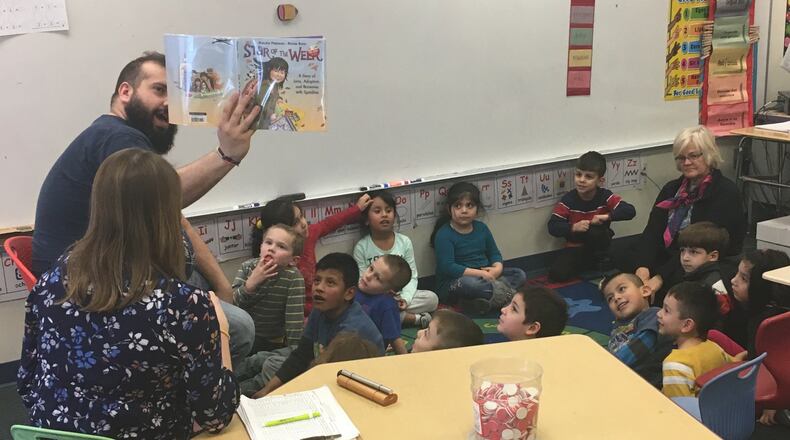Both proposed facilities have support from the city, the county, Learn to Earn Dayton and the University of Dayton’s Fitz Center, among others. They would house expanded early-childhood education centers, as well as job- and life-skill programs for adults.
“If we’re going to really move the needle and help families lift themselves out of poverty, we’ve got to approach it equally from the point of view of children and their development, as well as families and adults and their development,” said Jan Lepore-Jentleson, executive director at East End.
Vanessa Ward, president of Omega CDC, said their planned facility would feature a Mini University early learning center, a Miami Valley Urban League job training center, and a Sinclair Community College “service-learning” hub where student interns in a variety of programs provided services to families.
Credit: DaytonDailyNews
“(Omega and East End) were looking at this effort separately, and became aware that each of us had the same kind of interest,” Ward said. “We said we need to see where we can leverage our research and best practices, learn from each other and provide the best possible program — one on the east side and one on the west side.”
Lepore-Jentleson said East End has had discussions with the city about their proposed site at Highland Park, on Steve Whalen Boulevard. Omega’s site would be on the former United Theological Seminary grounds (which Omega owns) on Harvard Boulevard just west of Salem Avenue.
East End's proposal calls for a partnership with Miami Valley Child Development Centers, which runs Head Start classrooms throughout the region. Lepore-Jentleson said the new building would allow them to consolidate existing early-childhood efforts and expand, given a shortage of high-quality preschool spots currently available in southeast Dayton.
Much of East End’s adult services would remain at their Xenia Avenue site, but again, the new building would allow expansion, plus integrating adult services to the those families whose kids attend the new site.
Decision may not come for weeks
The Dayton Development Coalition annually reviews funding applications like these via its Priority Development and Advocacy Committee (PDAC) — which scores local proposals, then lobbies for funding for the highest-rated projects.
PDAC committees are currently in the project-review phase. The group generally meets in February to finalize its list, with the highest-scoring proposals eventually labeled priority projects that “will make a significant impact in the region, meet the need of the region and are identified as ready for funding.”
Each spring, Dayton Development Commission officials and community leaders fly to Washington to advocate for funding for the top-rated projects.
Lepore-Jentleson said East End’s planning is still in the early stages, as they’re looking at all kinds of funding options, including some that are tied to this summer’s state budget process. Both she and Ward said Omega’s program, dubbed The Hope Center for Families, is farther along.
Ward said in addition to the PDAC route, Omega is being considered for new-market tax credits and is pursuing funding from local and national foundations. She said they have an architect and have identified a builder, and they hope to break ground this year.
“This is just one phase of a multiphase project to present a positive anchor for Northwest Dayton, right in the heart of the Dayton View area,” Ward said. “The ultimate goal is for the (Omega Baptist) church to relocate to that location, and in addition, have senior housing and outdoor recreation — a real hub and anchor for the community as it was when the seminary was there years and years ago.”
Both groups' proposals mesh with the local Preschool Promise goal of serving more children with high-quality programming, said Robyn Lightcap, executive director of Learn to Earn Dayton. Asked if the new Preschool Promise board could commit funding toward the two buildings, Lightcap said that would be a board decision, but it is possible.
Learn to Earn’s letter of support for the projects says about 80 percent of Dayton’s children test as not ready for kindergarten when they actually start kindergarten, “and nearly all of them live in under-resourced families. Without any significant intervention, these children are three times more likely to remain poor as adults.”
Lepore-Jentleson said East End has had some success with its work in the Twin Towers neighborhood, including the Miracle Makers after-school program at Ruskin School, which has helped to raise academic performance there.
“There are a lot of things weighing families down, and it transfers to that next generation. The question has been, how do we break the cycle?” she said, pointing to academic, social and behavioral skill development at an early age as crucial. “We have to educate parents to help their kids get those skills, but if the parents didn’t get them in the first place (it’s hard). … We help families set goals for themselves, and then help them develop the tools to achieve those goals.”
Other political news today
About the Author

